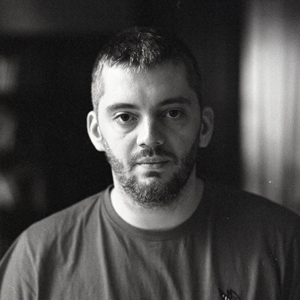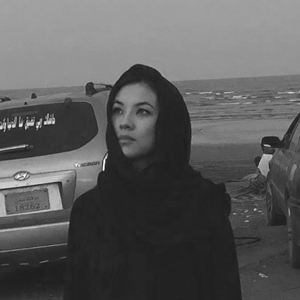
These Volunteers Help War Victims in Romania, Poland, and Georgia
On February 24, Russian president Vladimir Putin ordered troops to attack Ukraine after recognizing breakaway regions as independent. The invasion was followed by an outcry of Ukrainians, and the Western community immediately reacted. For over two weeks now the entire world has been watching as Ukrainians saw their homes, schools and entire cities destroyed.
Two million people have now fled the country, entire families crossing borders by foot into Poland, Moldova, Slovakia and Hungary. But in the midst of panic and destitution, volunteers from all across Europe have mobilised and made it their mission to help the refugees in every way possible. From free accommodation to provision of medical necessities, groceries and transport — the scope of help and solidarity with Ukraine is both unprecedented and inspiring. We spoke to three volunteers who put their lives on hold to help those fleeing the war.

Andrei Dascalescu
I’m a documentary filmmaker, but I have been volunteering for NGOs here in Romania and on different projects for a while. However, nothing has made me put my life on hold until now.
I went to a film festival in Ukraine for one of my documentaries in 2017. Kyiv is a city that is, I would say, more beautiful and more developed than our own capital. This is a place like ours, with people like us. These are real people, like all of us and our friends. So, this is what actually brought this huge wave of empathy from Romanians — even though I don’t think that historically, Romania and Ukraine have had a tight relationship.
On the morning of Thursday, the 24th of February, we all woke up to a new world that brought us war in Europe. I was shocked. I put my professional life — and even some of my personal life — on hold.
We tried to bring a little bit of order to the offers of help that were pouring in from people in our area. On Friday, when we heard that there were people coming in through the Siret border, and that there was chaos, my wife and I took our daughter to a relative and went to the border. That night, we created a network of people that were offering accommodation and food to Ukrainians at the Romanian border.
There is now official transport from the border to different places in Romania — and sometimes, even international transport straight from the border (e.g., buses to Italy and Poland).
One businessman gave up part of his hotel in Suceava to turn it into a refugee reception centre to offer them a place to sleep. Some people who [didn’t] immediately know where they were going are now staying in this hotel.
Our authorities were very slow, and, at some point, they were even preventing us from helping.
I organised transportation for a mother with six children. She got a hotel room right next to the border to spend the night in, and I organised transport for her to Bucharest, where someone promised to support her. The authorities wouldn’t let the car go to the hotel to pick her up, and the driver had to walk to the hotel. This is just one example.
You can’t let everyone who wants to help in, because you need to have some sort of control; some people actually want to take advantage of the refugees.
So, on the one hand, you need organisation; on the other, you need to move very fast, so people can get help quickly.
I helped a family find hosts in Suceava, and they left a €100 bill on the shelf at the family’s residence. It’s not necessarily poor people who need help; it’s all people, who suddenly woke up to a war and needed to escape it.
I saw a surge of offers for help in the first days, but offers have been fading away. We have a list of people who have offered their apartments, but yesterday, we were having problems like getting an apartment for a family, because hosts were not answering their phones, or they were saying that they were not available anymore. So, I’m concerned about that. Meanwhile, the stream of Ukrainians fleeing the country is not fading at all.

Mariam Pesvianidze
On February 25, the second day of the war, I was preparing for a commercial shoot for a Georgian bank, which we had planned on doing long before.
It was supposed to be a tutorial workshop in the Georgian language. We are trying to translate everything into the local language, and I supported this — even before this shocking war. The speaker was a girl who was born in Odessa, Ukraine, and the day before, we went to the protest against the war. One of my cameramen has a family in Kherson, Ukraine, and another one in Kyiv. The shooting was going for 20 hours or so, a deadly long period of time.
I woke up at six in the morning to go to the shooting. The guest speaker came with a flag of Ukraine on her t-shirt, and another one painted on her face.
We were speaking Georgian — although normally, we would speak Russian, too. The worst of all was when, during the breaks, we all turned on the Telegram channels and Instagram to read the news, and we saw pictures of bombing, and then terrible news just kept increasing. I would read this news, and then have to turn back to the girl and ask her to smile because, ‘Hey, we are shooting a commercial!’
The next day, I just gave up the job and told the crew that I was not going to shoot any commercials for an undefined period of time; it was just too much of a cognitive dissonance for me.
When I saw that the ruble, the Russian national currency plunged twice in 24 hours, and I did some research, I became convinced that there was no hope left, and the best thing for people to do was flee the country.
I posted on Facebook about it and got an overwhelming response from both Russians and Ukrainians, asking me about leaving their countries to Georgia. I started sending audio messages and explaining everything, but when it got to around 50 people asking me about it, it was becoming too hard to communicate with all of them one-on-one.
I started a Telegram channel, on which I post all the recent information and monitor the news regarding flights and people’s experience of fleeing to Georgia.
Tbilisi, the capital of Georgia, has long been a place to attract dissidents and intelligentsia. Thanks to its heart-warming people, wine, and general happy mood — even during the worst Soviet times— it still feels better than the rest of the countries.
Yet, I always warn people that it is obviously not the safest place; it is close to Russia; there has been a war already, and there are tensions between the two countries; plus, its national currency, the lari, depends on the ruble greatly. Some people would call this “Russophobia,” but I see it as common sense. For example, the Bank of Georgia will allow Russians to open an account, but they must sign a paper stating that they are aware of Russia occupying Georgia in recent years.
I believe it is important to remind Russian citizens about such historical facts that they might not be aware of. Obviously, I’m against Russophobia, and I always prevent it when I see it; yet being in Georgia seems to be much safer than being locked in Russia right now.
I just bought a laptop to structure all the information and help people as much as I can. I’m looking for volunteers, too, because I’m getting more … requests, and those people need help immediately. (Editor’s Note: As of March 6, there are 384 subscribers in the channel.) I get messages from friends of friends, professors, actors, and creative intelligentsia, all of whom need to be in a safer place. I believe it’s too late to put your life at risk right now, and I won’t call out people to protest and take it to the streets in Russia anymore. I don’t think that would stop Putin; it would only create more bigger bloodshed in the country.
It’s also helpful that people can exchange their experiences on my channel. I invited another girl who lives in Tbilisi and has a channel with a Russian-speaking community of over 11,000 followers. It’s huge for Tbilisi.
You can safely say the whole Russian speaking community is in her channel. We are going to discuss ways to better structure and be more efficient in our help to refugees.
Besides that, as in many countries, we are collecting humanitarian support in Tbilisi right now. There is a plane which can carry 80 tons and bring it to Ukrainians, so the whole city is working on collecting. We buy medicine, cosmetics, and other necessities.
I don’t know what is going to be next. One of my friends has a ticket to leave Moscow on March 15, but that seems like such a long time from now. Every day, we are expecting to see more pressure and collapse.
There are other countries where Russians can flee to, but there are not as many waiting for them as for Ukrainians right now. That is totally understandable, but Russians still need help. Georgia is relatively cheap, and this is crucial when people cannot withdraw money; there are huge lines at ATMs right now, and investment accounts and exchanges are just blocked.

Aleksandra Wisniewska
I’m a humanitarian-aid worker, and I have mostly focused on the humanitarian-relief efforts for victims of armed conflict in the Middle East. I’m currently in Poland, coordinating the efforts of the Happy Kids NGO evacuation team, which is managing a significant number of transfers of Ukrainian orphans from foster-care systems that are being currently evacuated to Poland.
Normally, they run family-type foster-care homes for children with limited-to-no chances for adoption e.g., large sibling groups, children with disabilities that we reunite in family-type children’s homes that really look like normal family homes, and we’re running 17 of them in central Poland.
However, since the crisis started, we have tried to step up to respond to the enormous needs caused by the war the outbreak of the armed conflict in Ukraine, and the Russian invasion.
Over the last four days or so, we have essentially become the main focal point for the Ukrainian Ministry of Social Policy. We have been receiving constant calls from all over Ukraine, starting from Western Ukraine, from cities like Lviv, to Central Ukraine, Odessa all the way to the Eastern side, and areas that are currently besieged, and that are affected by active fighting.
We’re in an emergency situation, and I think that certain instincts for the preservation of life and the future of Central Eastern Europe, which is the children of Ukraine who are currently in danger these instincts are so strong that they override a lot of intellectual analysis.
It is not even a question that we must get involved. We know that what we’re doing is a small percentage of what the Polish society and the international community is currently doing. It’s incredibly heart-warming for me to see the response from civilians that organized themselves even before the large international organizations arrived in Poland, and the government established the proper response. People are leaving their jobs and driving to the border to assist.
I worked on the Syria crisis. I worked in Iraq during the battle for Mosul and in various internally displaced-person camps and refugee camps in Europe.
I just returned from an area that has been in armed conflict for nearly two years in Yemen — a very different conflict, a protracted and forgotten crisis — where nearly 80% of society relies on humanitarian assistance to survive, and the scale of bloodshed, constantly collapsing peace negotiations, political negotiations, and insufficient documentation of war crimes, hunger, and famine that is essentially a systematic weapon of war at this stage. I’ve been exposed to that for so long; it makes me acutely aware of the dangers that children and the Ukrainian people in general are facing.
The interviews were conducted by Alexandra Tyan and Anastasia Chernikova